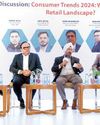The GST was implemented a year ago amidst much fanfare. The idea was to simplify the complex. Has GST lived up to its promise?

ALBERT EINSTEIN OFTEN SAID the clever simplify the complex while the rest complicate the simple. The Goods and Services Tax (GST) was implemented one year ago amidst much fanfare at a midnight gathering of the country’s leaders in the central hall of parliament. The objective was to collapse multiple state and central taxes into one broad-based nationwide tax. The Goods and Services Tax would therefore subsume VAT, service tax, excise and CST. The idea was to simplify the complex.
Has GST lived up to its promise? The first year of such an overarching tax reform is bound to undergo teething problems, especially in a fractious democracy like India, where regional satraps fiercely guard their states’ tax revenue. The fact that the government was able to get all states and union territories on board was itself a significant achievement. But the hidden hand of the bureaucrat which determines the devils in the detail has complicated what should have been a clean, simple GST regime. Einstein would not have been pleased.
Most truckers though are a happy lot these days. PostGST, their travel time across inter-state borders has fallen by over 25 per cent. Transporters are saving fuel. Drivers are saving money. Before GST was introduced, they would wait for hours at state check points. One driver said he once sat, ate and slept in his truck for 36 hours at a state border post. Now the checkpoints have gone. The need to bribe officials is over. But there is one niggle: flying squads of RTO inspectors who extract their pound of flesh. Overall though, GST has been a boon for the transport and logistics sector. As smaller towns assume greater importance in India’s economy, the sector will become a key driver of GDP growth.
At the checkposts
Denne historien er fra June 23, 2018-utgaven av Businessworld.
Start din 7-dagers gratis prøveperiode på Magzter GOLD for å få tilgang til tusenvis av utvalgte premiumhistorier og 9000+ magasiner og aviser.
Allerede abonnent ? Logg på
Denne historien er fra June 23, 2018-utgaven av Businessworld.
Start din 7-dagers gratis prøveperiode på Magzter GOLD for å få tilgang til tusenvis av utvalgte premiumhistorier og 9000+ magasiner og aviser.
Allerede abonnent? Logg på

Technology, AI Driving Warehousing Sustainability
Anshul Singhal on how Welspun One is rapidly transforming Grade-A logistics and industrial parks across India, offering integrated fund development and asset management for large-scale warehousing solutions

DECODING RETAIL'S NEXT FRONTIER
As brands pivot towards omnichannel ecosystems and startups challenge legacy frameworks, the focus sharpens on experiential retail, sustainability and data-driven personalisation.

SORORITY OF WOMEN OF METTLE
Awinter afternoon in mid-December found quite a crowd at the Oxford Book Store on Connaught Place, as bibliophiles congregated at a corner to listen to three women authors, diverse in their passions, but drawn together by an urge to tell their story.

THE LEGACY OF THE AMARNATHS
IN NOVEMBER 2017 the management committee of the Delhi Cricket Association named the eastern stand of the Feroze Shah Kotla ground the Mohinder Amarnath stand.

PUTTING THE POWER IN THE POWERHOUSE
The Asus ExpertBook P5 is powered by an 8-core 8-thread Intel Core Ultra 7 Series 2 processor that clocks a maximum speed of 4.8 GHz, but it does not have hyperthreading. It is light weight, with a smooth glass touch pad. The laptop almost has all the I/O ports you could possibly need in a business laptop, making it an extremely lucrative option for professional computing, says

"We must be aware of our energy and water consumption"
BW Businessworld caught up with actor, philanthropist, and climate warrior BHUMI PEDNEKAR to chat about climate change and more.

"Cooking is a passport to the world"
In conversation with renowned CHEF MANJIT GILL, Advisor at Kikkoman India and President, Indian Federation of Culinary Associations (IFCA). As the former Corporate Chef of ITC hotels, Chef Gill has helped shape iconic restaurants, such as the Bukhara, Dum Pukht, and Dakshin. He has had the privilege of serving former American Presidents Barack Obama, Bill Clinton, George Bush, and the French, Canadian, British and German premiers. In 1992, Chef Gill had the opportunity of being invited to cook for Prince Charles and Lady Diana, at the Palace of the Maharaja of Jaipur. He was awarded the Lifetime Achievement Award from the Ministry of Tourism in 2007.

Strengthening Middle Management for Organisational Resilience
WHAT HOLDS AN organisation together in chaos? Is it visionary leadership, cuttingedge strategies, or robust technology?

The Retail Trailblazers
A look at companies that are making a positive impact on India's growing retail sector with their future fit business and marketing strategies.

Driving Conscious Consumerism
VIDIT JAIN, Co-founder of Kindlife, is leading the charge in revolutionising the intersection of technology and conscious consumerism.